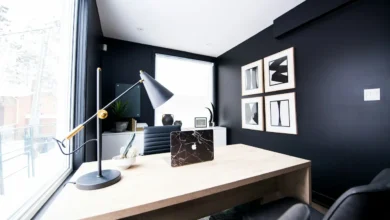Do you really need media training?
Maybe you’ve built up your product, service, or game-changing business model and things are ticking along nicely. You’ve invested in your team, got your systems sorted and you’re excited to see a little revenue trickling into the business. Everything is running smoothly. You’re enjoying steady organic growth, and you’re starting to get excited, so you decide it’s time to crank it up a notch and ‘do some public relations (PR)’.
But you’ll soon be speaking regularly with the media, and you want to ensure you’re putting your best foot forward. So when the PR firm you’ve engaged suggests you do some media training, a warm smile and a reassuring nod of the head are about all the convincing you need to sign on the dotted line.
You’re not alone. One of the first decisions entrepreneurs make shortly after committing to a PR campaign is to invest further money in media training.
Sometimes it’s because they’ve had a bad experience in the past and are wary of the media, other times it’s because they think it’s ‘the done thing’, but most of the time it’s because the PR agency has recommended it.
Big agencies traditionally look to pimp out their media training experts when revenues are down. For the big agency, it’s an easy way to earn an extra buck without the hassle of setting objectives, achieving a return on investment, or reaching stakeholders for the client. It’s a quick, easy, profitable one-off transaction.
Unfortunately, entrepreneurs make great targets: generally they have limited experience dealing with PR agencies and have bootstrapped to where they are now. They are naturally excited about the prospect of talking to the media about their burgeoning business.
But before you commit your money, you should take some time to consider the outcomes. Will sitting with a media trainer for a few hours yield the results you are looking for? Will you really feel better equipped to tell your story when you step out the door?
My message to all entrepreneurs going down this path is not to avoid media training, but to exercise extreme caution.
Not tailored for your needs
Media trainers, particularly at larger agencies, often use a cookie-cutter approach, rolling out one-size-fits-all scenarios and dispensing generic advice. Most are used to training CEOs and other business leaders – some of which come from publically-listed companies with masses of stakeholders. As such, your media trainer is unlikely to appreciate your unique position as an entrepreneur, taking an excessively heavy-handed and unrealistic approach to your training.
They’ll prepare you for the worst-case scenario – the investigative journalists and doorstop reporters – and train you to handle all manner of questions. But unless you’re a CEO of a large multinational, a politician, or a dodgy used car salesman, you’re probably wasting your time.
The truth is, the bulk of entrepreneurs will rarely be in a situation where they will be scrutinized heavily or cross-examined by a journalist seeking to tear shreds off them. If they are, it’s better to respond with the honesty that only an entrepreneur can, rather than a spokesperson who has to worry about how 40 different stakeholder groups will react to what they’re saying. Don’t forget, journalists at the end of the day are people trying to do their jobs as well.
It won’t stop the butterflies in your stomach
For some entrepreneurs, being exposed to such over-the-top media training can even have a detrimental effect. Think about it. Most entrepreneurs have completed a few interviews even before they’ve engaged a PR agency. Perhaps they’ve even appeared on live TV. But there’s a good chance their first interviews didn’t go as well as they planned. Maybe it was because they were underprepared, but most likely it was due to nerves.
While it’s natural to feel jittery, nervous, and anxious about the outcome if nerves are an issue, a rigorous session with a media trainer is unlikely to help. There’s a strong chance the entrepreneur will come away even more nervous than they were initially. They could even become gun-shy, opting to avoid media wherever possible for fear of encountering the horror interviewer.
For an entrepreneur, ill-targeted media training is not only a waste of time and money, but it can do more damage than good. But if you really think you need media training, and you’re confident your agency understands your needs and will tailor their approach to suit, there’s another thing to consider.
Personality poison
Entrepreneurs often agree to engage media trainers because they are convinced they need to improve their ‘polish’, ‘likeability’, or to deliver ‘key messages’.
The problem is, entrepreneurs can end up becoming far too polished. Their charm and enthusiasm get sucked right out of them, leaving them dry and wooden. In the worst cases, media training actually ends up becoming prohibitive, limiting their potential media exposure.
The producers of TV programs, editors of newspapers, bloggers, reporters, and radio hosts know what their audience wants. It’s not an agenda-saturated, sales drivel, nor is it excessive ‘corp speak’. In fact, the only people turned off more will be the reporters themselves (this applies to all media outreach, including press releases). The sum of it is, if an entrepreneur comes to an interview sounding like a marketing robot, they’ll very rarely find themselves being asked back.
The charm of an unpolished, honest, and relatable spokesperson cannot be emphasized enough. By all means, have key messages you want to get across, but don’t start sounding repetitive. Variety is the spice of life, and this holds true in the media.
Put simply, being down to earth is your biggest asset as an entrepreneur. No one knows your business as well as you do, and no one is as passionate as you are. Use that to your advantage.
Shooting from the hip might sound like a risky tactic, but as long as you remain level-headed, and are well prepared for the interview, your long-tail media exposure will benefit from it.
Don’t get me wrong; media training, when done properly can be an absolute asset. But all too often media trainers and PR agencies overlook the specific needs of entrepreneurs when conducting sessions.
Entrepreneurs have a massive advantage over their cohorts in the broader business community. They are not bound by the same corporate constraints. They normally don’t answer to a board, they usually don’t have shareholders, and they don’t usually have regulators breathing down their neck. They are challengers, disruptors and generally have great stories to tell.
So cash in on the advantage. Don’t throw it away by becoming another corporate bore, double speaker, or key message junky. Being anxious about a TV interview is the number one reason people engage a media trainer, so if you want some straight-up advice, the following will help:
- Practice dealing with difficult questions.
- Have your audience in mind when you’re speaking.
- Don’t spit out ‘brochureware’, completely ignoring the questions.
- Don’t swivel in your chair.
- Don’t look right down the barrel of the camera (unless you’re doing an off-site cross where you’re meant to).
- Please do not wear thin stripes on television.
We brief each client extensively before each major interview, but we’d never ruin their best media asset, their raw and engaging personality (no matter how unconventional), by forcing them to undergo traditional media training.
If you absolutely must have media training, do your research, ask the right questions and make sure it’s tailored to suit your needs. Whatever you do, don’t let the trainer turn you into a journalist-repelling automaton.
Vuki Vujasinovic is the founder of Click PR.





